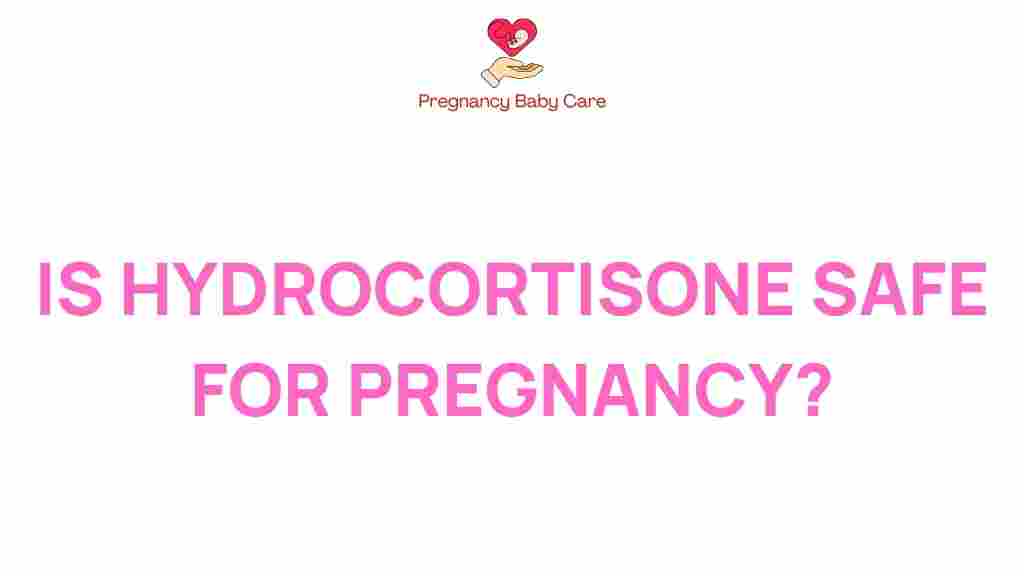The Truth About Hydrocortisone: Is It Safe for Expecting Mothers?
When it comes to managing skin conditions during pregnancy, expectant mothers often worry about the safety of medications. One such medication is hydrocortisone, a corticosteroid commonly used in various skin treatments. This article aims to explore the safety of hydrocortisone during pregnancy, the potential health risks, and what expectant mothers should know about using this medication.
Understanding Hydrocortisone
Hydrocortisone is a corticosteroid that helps reduce inflammation and relieve symptoms associated with certain skin conditions, such as eczema, psoriasis, and dermatitis. Available in various forms, including creams, ointments, and tablets, hydrocortisone is effective for treating localized skin issues.
Pregnancy Safety: What the Research Says
Expecting mothers often have concerns about the medications they take. The safety of hydrocortisone during pregnancy has been a topic of research, and while localized use of hydrocortisone is generally considered safe, it is essential to understand its implications.
- Topical Use: Studies indicate that using hydrocortisone cream or ointment in small amounts is unlikely to harm the fetus. The skin absorbs only a minimal amount of the medication.
- Systemic Use: Oral or injectable forms of hydrocortisone may pose more significant risks. These forms can lead to higher systemic absorption, which is why they should only be used when necessary and under a doctor’s supervision.
Health Risks Associated with Hydrocortisone
While hydrocortisone can be effective for treating skin conditions, there are potential health risks to consider:
- Potential Side Effects: Some expectant mothers may experience side effects such as skin thinning or stretch marks when using topical hydrocortisone over extended periods.
- Systemic Effects: Long-term use of systemic hydrocortisone can lead to complications such as gestational diabetes, hypertension, or adrenal suppression.
- Infection Risk: Corticosteroids can weaken the immune system, which may increase the risk of infections during pregnancy.
Hydrocortisone: A Step-by-Step Guide for Expectant Mothers
If you are an expectant mother considering hydrocortisone for a skin condition, follow these steps to ensure safety:
1. Consult Your Healthcare Provider
Before using hydrocortisone or any medication during pregnancy, it’s crucial to speak with your healthcare provider. They can assess your condition and determine the most appropriate treatment.
2. Choose the Right Form
For localized skin issues, topical hydrocortisone is often recommended. Avoid systemic treatments unless absolutely necessary and prescribed by a healthcare professional.
3. Use as Directed
Follow the prescribed dosage and application instructions. Overusing hydrocortisone can lead to skin complications and increased risk of side effects.
4. Monitor for Side Effects
Keep an eye on any changes in your skin or overall health. If you notice adverse effects, such as increased irritation or signs of infection, contact your doctor immediately.
5. Explore Alternative Treatments
In some cases, non-steroidal treatments may be available. Discuss these options with your healthcare provider to find a suitable alternative for managing your skin condition during pregnancy.
Troubleshooting Tips for Expectant Mothers
Here are some troubleshooting tips for managing skin conditions safely during pregnancy:
- Hydration: Keep your skin moisturized using pregnancy-safe lotions or creams to reduce dryness and irritation.
- Natural Remedies: Consider natural remedies such as aloe vera or coconut oil for soothing irritated skin.
- Sun Protection: Protect your skin from the sun, as pregnant women are more susceptible to skin changes.
- Diet and Nutrition: Maintain a healthy diet rich in vitamins and minerals to support skin health. Foods high in omega-3 fatty acids can be particularly beneficial.
Conclusion: Making Informed Decisions About Hydrocortisone
In conclusion, hydrocortisone can be a safe option for expectant mothers when used appropriately. The localized application of hydrocortisone is generally considered safe, but it is crucial to consult your healthcare provider before starting any treatment during pregnancy. Understanding the potential health risks and monitoring your skin’s response can help ensure maternal health and the well-being of your baby.
For further reading on medication safety during pregnancy, you can visit MedlinePlus. It is essential to stay informed and make decisions that prioritize both your health and your baby’s health.
Always remember that your healthcare provider is your best resource for managing health concerns during pregnancy. Stay informed, stay safe, and take care of yourself!
This article is in the category Pregnancy and created by PregnancyBabyCare Team
